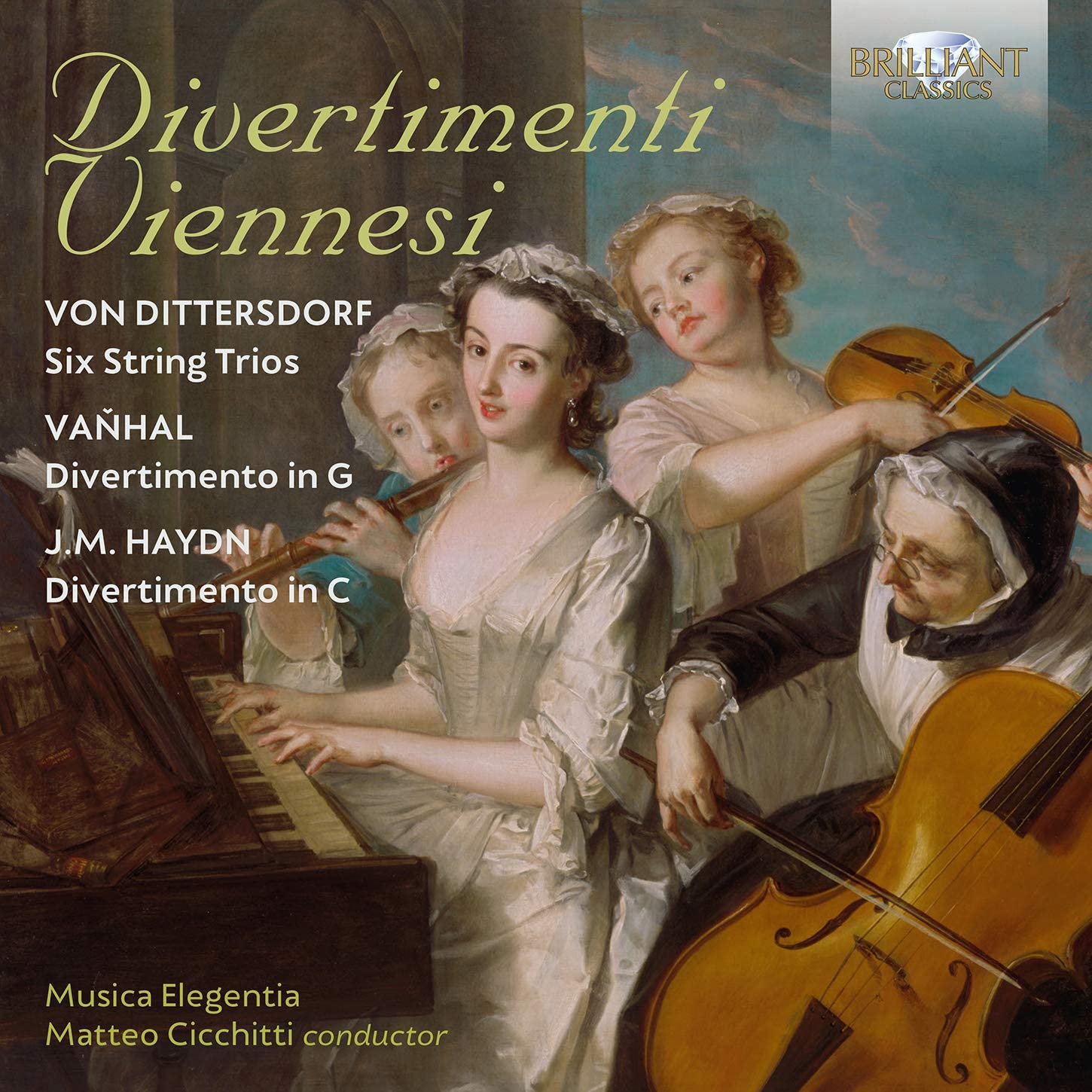Musica Elegentia, Matteo Cicchitti conductor
88:15 (2 CDs in a single jewel case)
Brilliant Classics 96127
Dittersdorf: Six string trios; Michael Haydn: Divertimento in C; Vanhal: Divertimento in G
Click HERE to buy this on amazon.co.uk
The name of the ensemble playing this Unterhaltungsmusik pretty much sums up its style and content – this is elegant but trivial repertoire, intended as background music to social occasions or to be played by amateurs primarily for their own entertainment. So there is nothing terribly intellectually challenging on this 2-CD set. What is interesting, is that this sort of light chamber music provided the everyday soundtrack for late-18th– and early-19th-century Vienna, which in turn provided the backdrop for so much ground-breaking composition. In addition to boasting one of the best names in the whole of classical music, Karl Ditters von Dittersdorf also has the distinction of having played in a string quartet with Vanhal, Mozart and Joseph Haydn, so it is clear that the great masters happily rubbed shoulders with their lesser contemporaries, and even made music with them. Vanhal was a student of Dittersdorf, while Michael Haydn was, of course, the younger brother of Joseph Haydn. The first CD of the set features trios for two violins and violone by Dittersdorf – the programme note makes the valuable point that the violone was seen as the default string bass instrument in Vienna at this time. The yawning gap in pitch between the two violins and the violone seems a little odd to begin with, but you soon get used to it. The performers try to inject as much wit and energy as possible into Dittersdorf’s music, but it did eventually all begin to sound the same to me – perhaps this is not a criticism of music intended as ‘background’, the ‘muzak’ of its time. I have to say I preferred the two Divertimenti on the second CD by Vanhal and Michael Haydn, where a viola replaced the second violin and helped to bridge the chasm between the violone and the upper strings. This was generally more imaginative repertoire, perhaps slightly later in provenance than the Dittersdorf, although I did still find the occasional ‘violone thrash’ moments a little comedic.
D. James Ross
